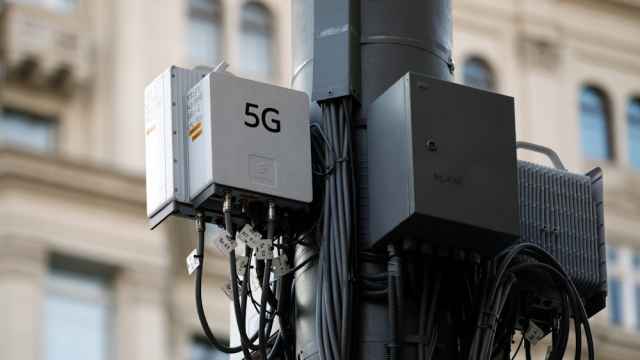Moscow plans to expand its residents’ digital profiles to include data on their incomes, school grades and pets, the Kommersant business daily reported Monday, citing public documents.
Moscow City Hall currently collects the gender, age and income level of residents signed up to its mos.ru municipal services website and as part of its monitoring systems. In November, it took steps to increase the scope of collected data to include “signs of loyalty” amid what critics called a crackdown on dissent by the Kremlin.
According to Kommersant, City Hall placed a 185-million-ruble ($2.5 million) tender on Dec. 30 for a contract to “increase the volume of stored information about citizens” within eight months.
The profiles will reportedly include tools to verify users’ real incomes and schoolchildren’s electronic gradebooks as well as data on residents’ pets. The so-called “centralized profile management” system will also integrate with other systems for mutual data enrichment and is expected to handle 20 million profiles a year.
Moscow City Hall’s Department of Information Technology (DIT) maintained to Kommersant and other outlets that the database holds information submitted voluntarily for residents’ convenience.
“The user doesn’t need to fill out an application every time or look for a way to deliver a paper document since all the necessary data is filled in automatically from the personal account,” the DIT's press service told the state-run TASS news agency.
Experts fear that centralizing citizens' information increases the risk of leaks to Russia’s notorious and lucrative personal data black market, while authorities say such risk is minimal.
Observers have also compared the digital profiles to China’s Social Credit System, which rewards or punishes citizens based on individual scores derived from their personal characteristics, behavior and credit history.
A Message from The Moscow Times:
Dear readers,
We are facing unprecedented challenges. Russia's Prosecutor General's Office has designated The Moscow Times as an "undesirable" organization, criminalizing our work and putting our staff at risk of prosecution. This follows our earlier unjust labeling as a "foreign agent."
These actions are direct attempts to silence independent journalism in Russia. The authorities claim our work "discredits the decisions of the Russian leadership." We see things differently: we strive to provide accurate, unbiased reporting on Russia.
We, the journalists of The Moscow Times, refuse to be silenced. But to continue our work, we need your help.
Your support, no matter how small, makes a world of difference. If you can, please support us monthly starting from just $2. It's quick to set up, and every contribution makes a significant impact.
By supporting The Moscow Times, you're defending open, independent journalism in the face of repression. Thank you for standing with us.
Remind me later.






